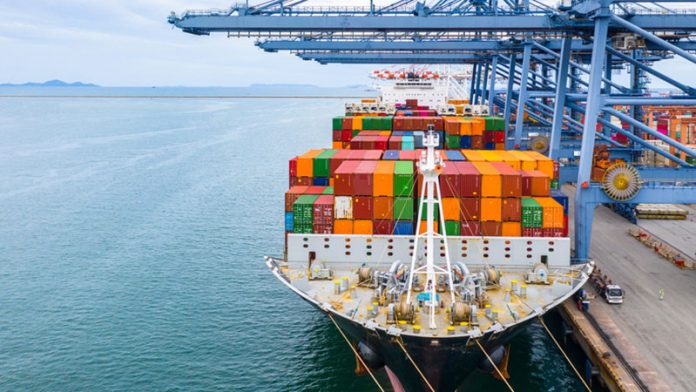Shipping companies are responsible for transferring cargo from one destination to another seamlessly and professionally as possible.
However, facilitating the transfer of cargo and materials is just one of the many functions that these companies embark on. Various other roles require the attention of such companies, that enhance port operations and ensure that freight logistics operate at maximum level.
Shipping companies work with other players such as shipping brokers, liner agencies, and clearing agents to perform all duties in an organized fashion. Clearing agents ensure goods that arrive are cleared through customs. They work in various ports and countercheck the presence of spare parts, immigration, and health of provisions.
Shipbrokers can be shipping agents who facilitate the purchase of the ship in case of any sale. They are mediators between the buyer and the seller and get a commission with each transaction. Liner agencies aim to offer representation to more than one linear shipping company and assist in freight collection, cargo acquisition, and documentation.
Shipping companies ensure that the ship and the cargo are maintained and fully functional. They are also responsible for the ship personnel and organizing staffing and allocation of wages. Shipping companies can choose to outsource ship onboard management to lessen their service load.
Shipping companies often charter ships for cargo transportation as most shipping companies do not own the ships they manage. Most shipping companies operate together with other companies to operate the management of the ship operations. Ship-owners can also have their own shipping companies thus having a partnership system.
Freight logistics
Shipping companies organize transport through several main channels. Goods can be transported through individual channels or intermodal shipments which include multiple modes of transportation. The main goal of shipping companies is to ensure that the goods arrive at their destination. There are four distinct types of freight logistics available that shipping companies help facilitate:
-
Air shipments
This is the fastest mode of shipping and involves shipping through air transport. Perishable and sensitive goods benefit from this mode of shipment.
-
Ocean shipments
These are shipments done by sea and include mostly bulky and heavy goods. These goods are placed in lockable containers enhancing safety and security. Shipping companies facilitate the dispatch of the goods to the destination, facilitate custom and duty clearance, and ensure door-to-door delivery of the goods to the intended destination.
-
Rail shipments
This shipping is by rail and accommodates bulky goods on transit. Shipping companies facilitate this transport by ensuring goods are carefully transported in specific carriers and delivered to the destination.
-
Road shipments
This can be both local and international, and require documentation for movement between regions. The shipping companies will ensure that the goods arrive at the destination, and door-to-door delivery is available.
Responsibilities of a shipping company
The major role of shipping companies is to ensure that the various types of freight logistics are functional and operational to prevent cargo from overstaying at the port causing the backlog.
Shipping companies ensure that their functions offer satisfaction to their customers. As a result, they employ organized warehousing functions that aim to fasten the delivery process and safeguard their customer’s goods. Digitized warehousing systems are employed to help manage, track and stage different products for loading. These warehouses have real-time recording and electric scanners and devices to locate individual items and establish their exact location. As a result, there is seamless dispatch and return of goods enhancing the rotation of goods and items.
The professionals in the warehouses are trained to be able to manage inventories, operate digitized systems to track and organize goods and maintain the turnover rate to facilitate faster shipping processes.
When it comes to inbound and outbound processes, the warehouse management systems can minimize the likelihood of errors and ensure that each item is dispatched to its intended transportation. Inbound processes facilitate order tracking, dock instructions, serial numbers and manufacturing, and expiration dates. All this information should be sent ahead to smoothen the receiving process by reducing further entries.
Outbound processes include the picking and staging area where the goods are kept as they await loading. Shipping companies may employ electric picking where the goods being on pallets are moved automatically moved to the staging area. Manual picking is sometimes employed especially when the goods are picked by order.
Trends in shipping companies
The onset of emerging and developing technologies has allowed for new and developing trends in the shipping industry. The shipping industry has evolved for a long time, with advancements happening yearly being pushed by the constant need for innovation.
Environmental protection and globalization are two trends that have altered the industry’s landscape and will continue to do so for the foreseeable future. These changes are making the commercial shipping industry a lot more fascinating, providing new challenges and ideas for industry professionals to tackle.
Bigger and better plans are always in the plan when it comes to shipping. New and innovative designs for megaships and massive behemoths are always in play every year. These ships can take on much more load and carry unlimited cargo that goes beyond those of over 6000 ships.
These ships come automated and advanced making the journey at sea as seamless as possible. The use of robotics and AI also comes to play with these modern advancements to help handle shipping operations. This has led to increased productivity and less workload for the crew, as operations are made easier and faster.
Due to this innovation, the ships are becoming more and more specialized to be able to transport difficult and bulky cargo. For instance, there are ships specialized to transport specific machinery, and the shipping crews are also trained to handle such type of cargo and ensure a smooth sail to the destination.
The constant innovation is sensitized to minimizing the carbon footprint as much as possible. The presence of improved and modern ships means they will be environmentally friendly, continue the green revolution, and reduce the emissions of carbon and other gases.


































